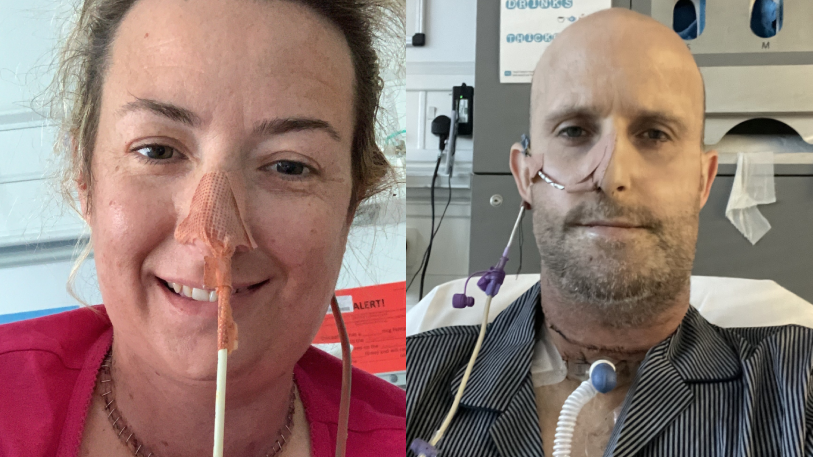Responding to the latest NHS England Cancer Waiting Times figures, Kate Seymour, Head of External Affairs at Macmillan Cancer Support, said:
“Last week’s figures show there were still more than 100,000 people with cancer in England who waited more than two months to start treatment following a referral for suspected cancer last year — more than twice as many as in 2019. This is unacceptable.
“However, at a Macmillan event on World Cancer Day last week, Wes Streeting committed to cut waiting times and close the gaps in cancer care ‘as a priority’.
“We therefore feel hopeful about these commitments and look forward to working with the Government to turn its plans for the NHS into action and make world-class cancer care a reality for everybody in the UK, no matter who they are or where they live.”
Macmillan is here to support everyone affected by cancer. Our Support Line is open 7 days a week from 8am-8pm.
2024 fact box for England
- The latest figures show that despite some signs of improvement, there were still more than 100,000 people with cancer in England who waited more than two months to start treatment following a referral for suspected cancer last year — more than twice as many as five years previously. (1)
- While 2024 saw a record number of people starting treatment for cancer in England following a referral for suspected cancer, the number of those people who waited more than two months to start their treatment was also the highest on record, and has been growing at a substantially greater rate than the total number starting treatment. (2)
- 2024 was also still one of the worst years on record for the 31-day cancer treatment target in England. (3)
- Other new figures from Macmillan Cancer Support show that half of people currently having cancer treatment in the UK (50%) are worried about general pressures on the NHS affecting their chances of survival. (4)
References
- NHS England. Cancer waiting times. Based on a combination of analysis of from the following sources:
- Cancer Waiting Times NHS England
- Cancer Waiting Times statistics up to September 2023
In 2024, a total of 105,544 people with cancer in England waited more than two months to start treatment from an urgent suspected cancer or breast symptomatic referral, or urgent screening referral, or consultant upgrade.
In 2019, the equivalent figure was 46,360 people (based on combined figures from the formerly separate versions of the 62-day target).
- As per reference 1 - In 2024, the total number of people starting treatment following a referral for suspected cancer increased by 1.44 times compared with 2019 (325,276 people in 2024 compared with 225,319 people in 2019), while the total number who waited more than 62 days to start treatment following a referral has increased by 2.28 times over the same time period (105,544 people in 2024 compared with 46,360 people in 2019).
- As per reference 1. Average performance against the 31-day treatment target was 90.8% in 2024, compared with 90.1% in 2023. Current performance is not directly comparable to 2022 and previous years due to changes in the target, however the data available suggests performance was better in 2022 and previous years compared with 2023 and 2024.
- Macmillan Cancer Support/YouGov survey of 2,057 adults in the UK who have had a cancer diagnosis, including 223 people going through treatment. Fieldwork was undertaken between 3rd and 27th January 2025. The survey was carried out online. The figures have been weighted and are representative of people living with cancer in the UK (aged 18+). Survey question was as follows: How worried, if at all, are you about the following? ‘General pressures on the NHS affecting my chances of survival’.
Read more
-
News and stories 10 Sep 2025In this blog, Gemma reflects on the impact Macmillan made last year ahead of the launch of Macmillan Cancer Support's Annual Report for 2024.
-
News and stories 03 Sep 2025Anthony Cunliffe, National Lead Medical Adviser at Macmillan, explains why more needs to be done to make cancer care fair.
-
News and stories 10 Jul 2025The Prime Minister launched the government’s long-awaited 10 Year Health Plan, outlining a vision to “bring the NHS closer to home.”





